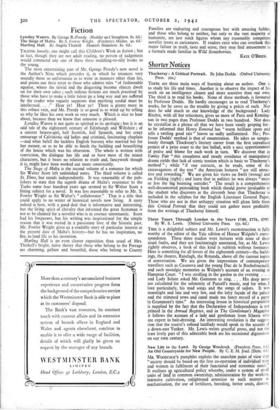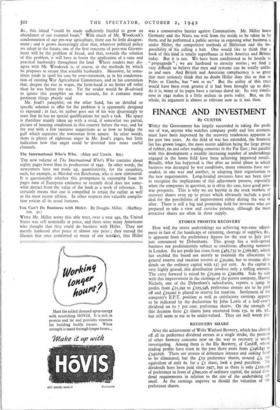MR. WOODCOCK'S pamphlet exploits the anarchist point of view that
" society should be based on the free co-operation of individual men and women in fulfilment of their functional and economic needs." It outlines knt agricultural policy whereby, under a system of small units of land in common ownership, administration by the workers, intensive cultivation, enlightened attention to such matters as mechanisation, the use of fertilisers, breeding, better seeds, disease, &c., this island "could be made sufficiently fruitful to grow an abundance of our essential foods." With much of Mr. Woodcock's condemnation of our pre-war agriculture, there can be little disagree- ment ; and it grows increasingly clear that, whatever political policy we adopt in the future, one of the first concerns of. post-war Govern- ment will be the problem of bread, and that, towards the solution of this problem, it will have to foster the application of a sane and practical husbandry throughout the land Where readers may dis- agree with Mr. Woodcock is, of course, in the methods by which he proposes to secure that sensible husbandry. Moreoirer, he some- times tends to spoil his case by over-statement, as in his condemna- tion of existing War Agricultural Committees, and in, his contention that, despite the rise in wages, the farm-hand is no better off today than he was before the war. Yet the reader would be ill-advised to ignore this pamphlet on that account, for it contains many pertinent things plainly said
Mr. Joad's pamphlet, on the other hand, has no detailed or specific solution to offer for the problem it is apparently designed to expound ; in fact, its author goes out of his way disarmingly to state that he has no special qualifications for such a task. His space is therefore mainly taken up with a vivid, if somewhat too partial, picture of housing conditions in this country before the war, and for the rest with a few tentative suggestions as to how to bridge the gulf which separates the townsman from nature. In other words, there is plenty of righteous anger in Mr. Joad's pages, but little indication how that anger could be diverted into more useful channels.



























 Previous page
Previous page